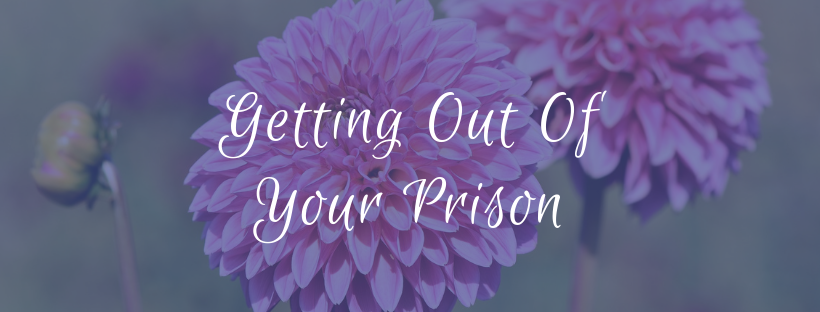I usually love to spend the day AFTER a holiday in my pj’s – resting and doing nothing. I go all out cooking and making holidays special, so I get tired. So, I was a bit grumpy when the organization I volunteer for at the women’s prison announced that the graduation ceremony would be on Easter Monday.
But, in hindsight, it was absolutely the perfect day on which to hold it!
As I left my cell phone in my car (required, for prison entry) and walked through three levels of doors and gates, I knew I didn’t want to be anywhere else but right there at the women’s prison. I wanted to be with the women whom a dozen of us volunteers had mentored over the previous eight weeks.
This is the place of new beginnings and transformations. This is where sentences are served and forgiveness is found. Where the old is let go of and a possibility of being renewed is embraced. Where the hope of a new life is like a medicine that helps heal the old life once full of pain and darkness.
I was running a bit late and got lost finding the right classroom. When I walked in, most of the inmates had already introduced themselves to the group. I noticed my mentee who gave me a big grateful smile. I knew she would have been disappointed if I hadn’t made it. It would have felt like so many times before – when people in her life had let her down, leaving her broken and abandoned.
I felt an intense emotion that rose to my eyes and tickled my nose, and I let the tears come. I had made it; I hadn’t let her down! I smiled gratefully back at her.
I also knew that even if she had felt disappointment when she hadn’t seen me there at first, she had done enough work on changing her own story that she would have let that thought (and emotion) pass and replace it with a different one that would make her feel loved. Like remembering that traffic was bad at that time of day, and that if I wasn’t able to be there, it’s probably because of my crazy schedule and my commitment to my kids. She was a mom, too; she could relate.
I listened as the women finished introducing themselves and expressing how they felt in that moment (which was a prompt the teacher had given them.) A lot of ‘grateful’ and ‘proud’ feelings, I thought. When it was my turn, I said: “My name is Tajci Cameron, I’m sorry I’m late, and I feel rushed.”
Everyone chuckled. My mentee smiled big and gave me a thumbs-up. Now I felt loved and understood, and she was the one giving me that acceptance.
Before we handed out certificates for completion of the “Better Decisions” class to our mentees, we had one more exercise to complete. It began with a quick review of five steps that can help us in decision making:
1. See the situation clearly;
2. Know what you want;
3. Expand the possibilities;
4. Evaluate & decide (and commit);
5. Act.
This image is property of Better Decisions.
The teacher gave an example, and each of the women quickly worked out the best outcome for the given situation.
As they did this exercise, I reviewed the eight weeks of work we had done… as each of these steps requires some deep work around understanding the external situation vs. internal state (thoughts and feelings). Each step also involves discerning what we can change and what we can not; how to respond vs. react; developing refusal skills; and understanding the pressures and crunches in which we might find ourselves.
So much of this work is needed for all of us (not just for the inmates).
As we handed out the certificates, each mentor said something about the woman with whom she had worked. If this session had been videotaped (and the women were wearing regular clothes), you would NEVER think that they came from criminal backgrounds. You would only see their results of their respective transformations from despair, addiction and trauma to healing, hope and potential. At least half of the mentors said they could see their mentees stepping into a leadership role once they were out of prison.
These women had shared something in common earlier in their lives – their destructive behaviors, addictions and criminal acts had been influenced and fuelled by various things that had happened to them when they were younger.. Now – today – these same women have a compassion and an understanding that can teach those of us who haven’t had to deal with the same struggles. We can learn from these women how to create a world where no little girl or little boy would ever have to feel let down, forgotten or abandoned, even if their parents aren’t equipped to take care of them.
We can build a system that won’t just write off the unfortunate and traumatized; instead, we would give them a chance to build a future in which they would never have to know the inside of a prison cell.
I hope this account offers you an insight into the women who are locked up (a huge number of them for drug-related crimes). Most of the women addicted to drugs have experienced trauma.
Perhaps you, too, can be inspired to keep transforming your own struggles into a new life, like these mentored women have.
CONNECT WITH ME
[inf_infusionsoft_inline optin_id="optin_5"]

